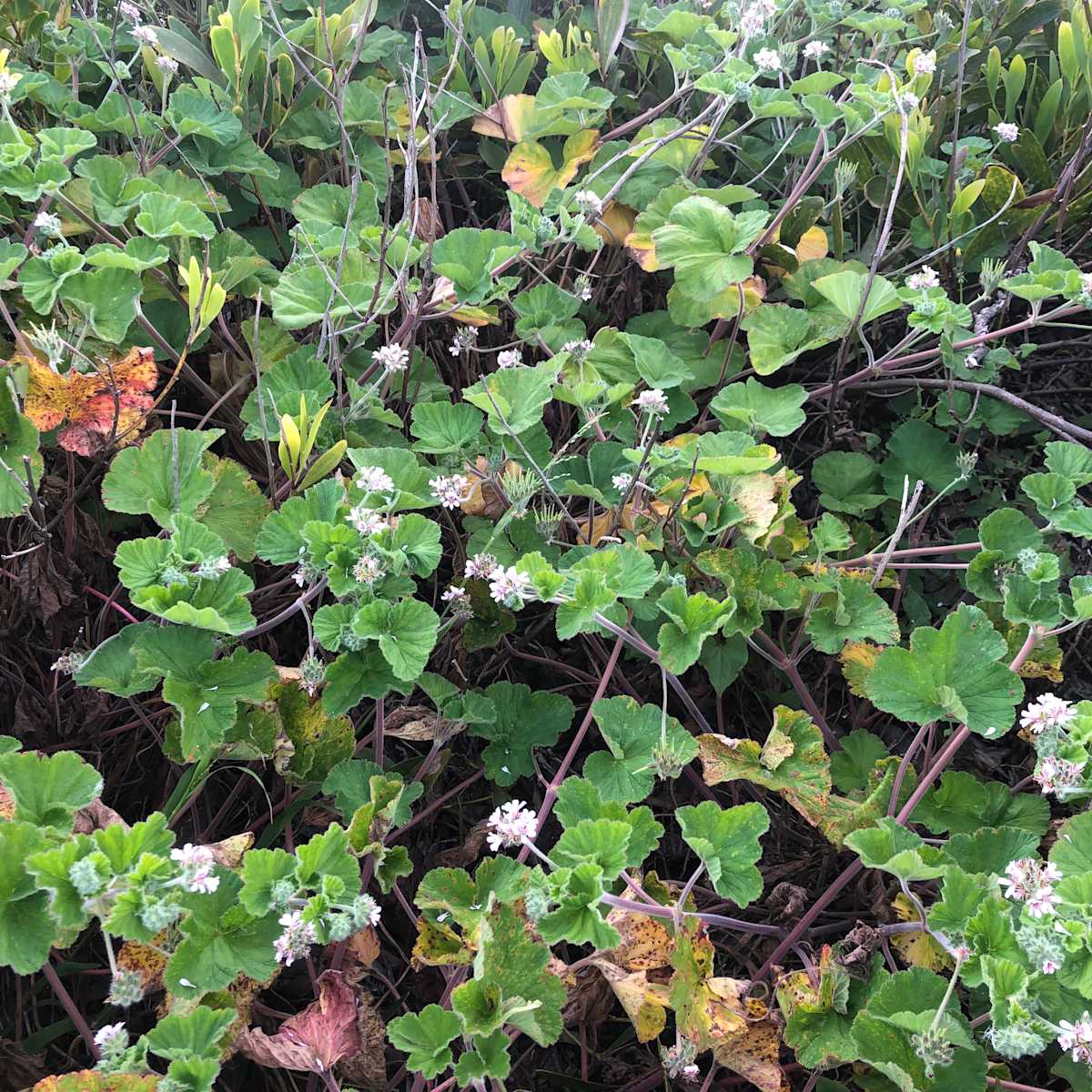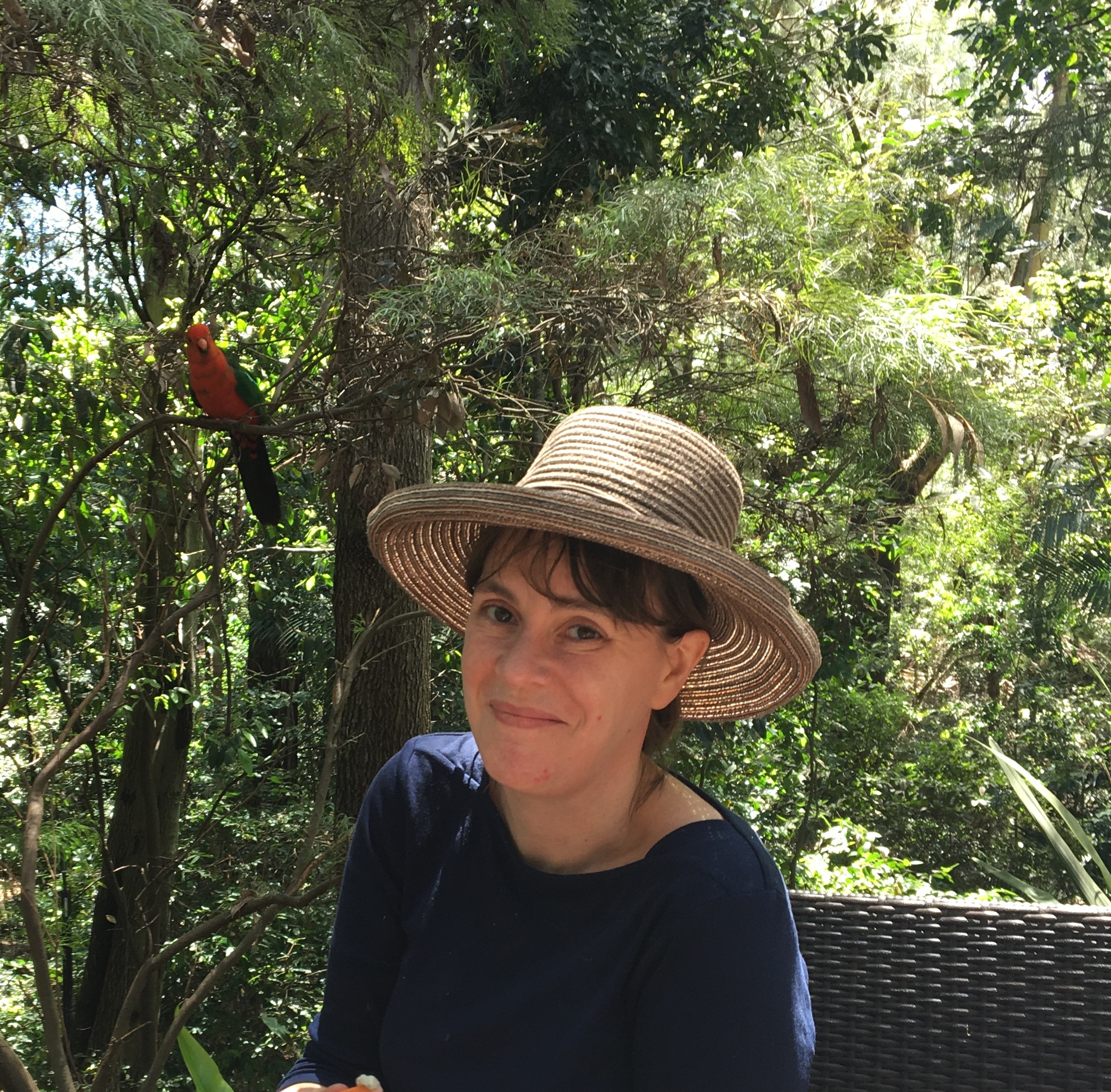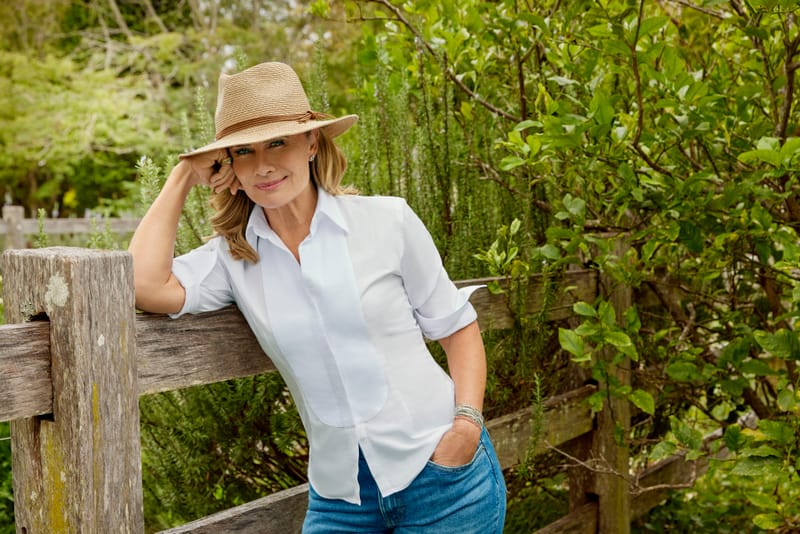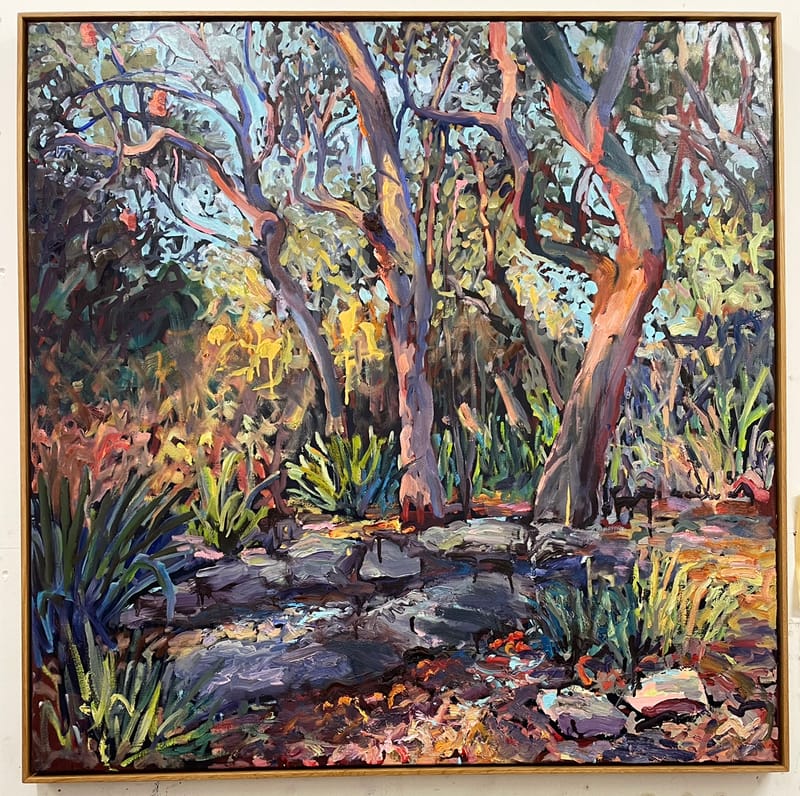Staking out Storksbills at Puckey's
I'm lucky to live within easy cycling distance of Puckey's Estate in Fairy Meadow, and it's one of my favourite places to wander when conditions allow. Right now, there's an absolute mass of coastal species in flower or fruit, and they can easily be...
I'm lucky to live within easy cycling distance of Puckey's Estate in Fairy Meadow, and it's one of my favourite places to wander when conditions allow. Right now, there's an absolute mass of coastal species in flower or fruit, and they can easily be seen if you walk along the coastal paths within the Estate or even at the top of the beach itself, where the vegetation meets the dunes.
One of the standout species at the moment is the Native Storksbill (Pelargonium australe). It naturally forms quite neat rounded clumps, and its soft, lobed leaves are a good backdrop to the pink flowers. The flowers might be smaller than those on cultivated Pelargoniums or Geraniums, but they attract all sorts of insect pollinators, from native bees to European honey bees and pretty hover flies whose stripy bodies make them look a bit like honey bees too.
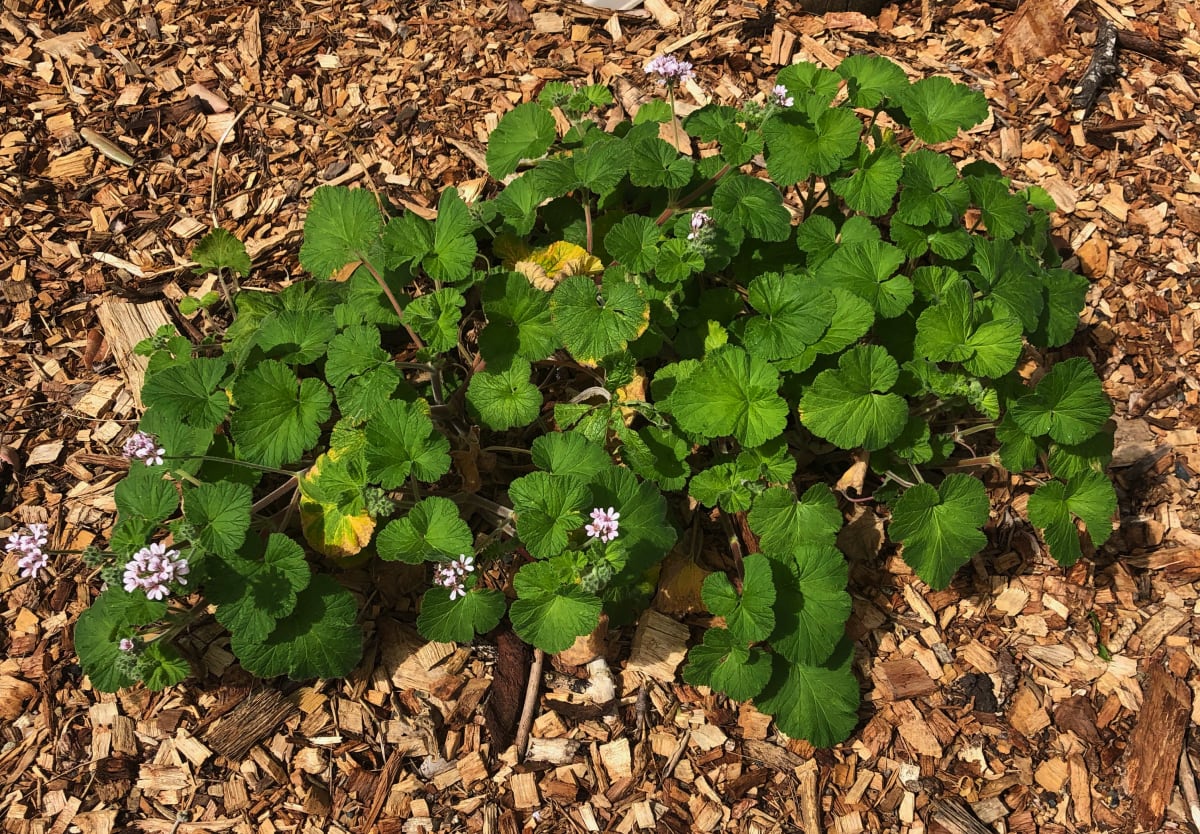
A colour bonus is provided by the older leaves, that often take on reddish, orange and yellow tinges before they fall. And this can happen all year round, not just in spring. The common name, Native Storksbill, comes from the shape of the fruit, which are long and narrow with a point at the end. As this species is quite widespread in suitable habitat, you should be able to see it in most areas of remnant or recovering coastal vegetation.
